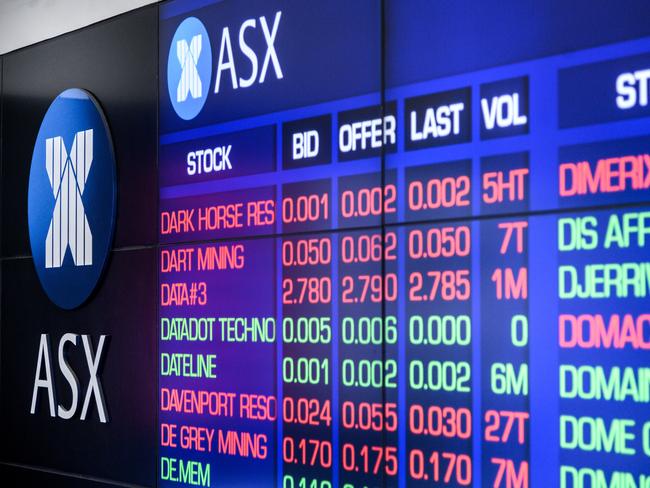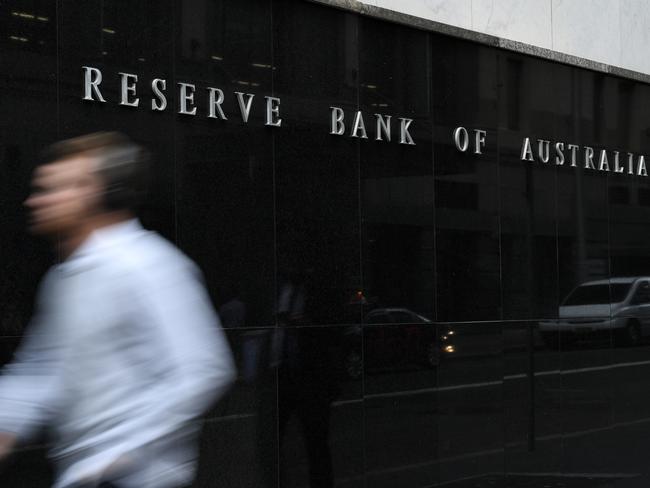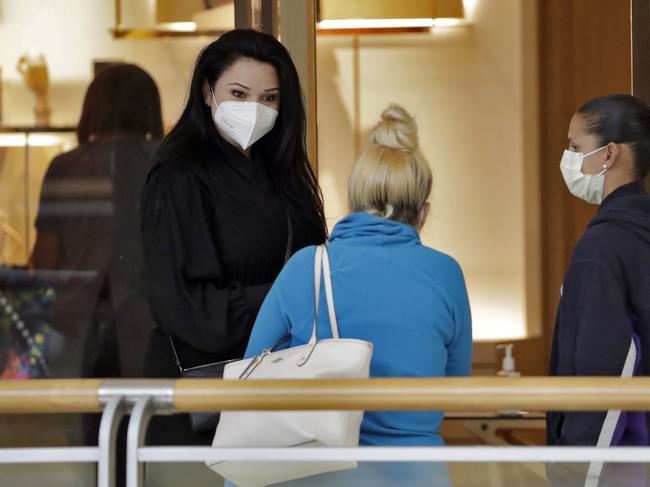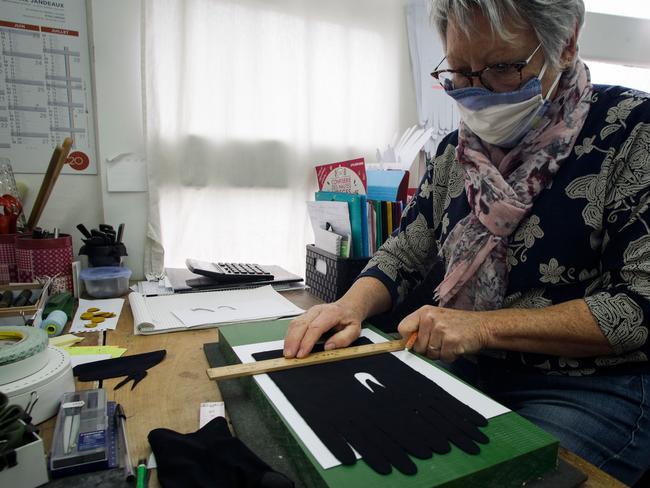RBA predicts Australia on course for recession as lockdown easing plan boosts sharemarket
The Australian stock market has rallied, with economists welcoming the government’s three-step plan to reopen the nation despite the RBA’s grim prediction.
Business
Don't miss out on the headlines from Business. Followed categories will be added to My News.
Economists welcomed the government’s three-step plan to reopen the nation but noted it was up to the states and territories to decide on timeframes.
The plan’s forecast of getting 850,000 jobs reinstated by July was “good news”, they said, but AMP Capital chief economist Shane Oliver said this target might take a little longer to reach because of the damage to the economy and businesses being hesitant to rehire workers quickly.
“The plan seems like a good one - it’s not based on US-style bravado,” he said.
“It’s measured, stepped out over time, with checks along the way.”
Dr Oliver said it had been estimated that one million jobs had disappeared, so a quick recovery - given the talk in March was of a six-month lockdown - was “a pretty good outcome for the economy”.
CommSec chief economist Craig James said the three-step plan “made sense” and enabled businesses to plan with more certainty.
“It’s very clear, which is good,” he said.
“It may be in some states and territories things will be back to a relative sense of normality a bit earlier.

“But it only takes a massive rise in the number if COVID cases and you have the reimposition of lockdowns and we start back at square one.”
Mr James said it was important to get people returning to employment, as the longer they stayed out of a job, the harder it became for them to get back to work.
AUSSIE SHARES FINISH HIGHER
Australian shares have finished higher, with retailers buoyant after Prime Minister Scott Morrison and the National Cabinet disclosed a roadmap to reopen the country for business.
The benchmark S&P/ASX200 index finished Friday up 26.9 points, or 0.5 per cent higher, at 5,391.1 points, while the All Ordinaries index closed up 38.1 points, or 0.7 per cent, at 5,488.
The Australian dollar was trading higher at 65.30 US cents, up from 64.54 US cents on Thursday and close to its highest levels since the coronavirus crisis began in early March.
Shares had earlier climbed as much as one per cent in early trading, buoyed by overnight gains on Wall Street, before sentiment cooled.
“Risk sentiment appears to have been broadly supported into the end of the week with reopening hopes continuing to carry the market through, though some caution appears to have set in ahead of the key US labour market updates,” IG markets analyst Kyle Rodda said in a note.

In the local market, gains were led by mining and energy stocks and supported by strength in financials.
Shares in mining majors BHP, Rio Tinto and Fortescue Metals were up between 2.0 and 3.0 per cent while gold miners were also trading stronger. For the energy sector, Woodside Petroleum, Santos and Oil Search led with increases of around 2.0 per cent each while Beach Energy was higher by 1.3 per cent, to $1.52.
Property shares also look to be having a good day, led by a 3.0 per cent rise in Goodman Group $14.52.
NAB was the only one of the big four banks to be showing losses, with the other three trading around 0.5 per cent higher.
Macquarie Group shares were up 3.7 per cent to $103.25 as investors shrugged off a dividend cut and a full-year profit drop by the investment bank. AMP shares are up 5.0 per cent to $1.43 after the wealth management giant shelved a decision to divest its New Zealand wealth management operations, following the volatility of the COVID-19 pandemic.
Shares in Telstra were down 0.5 per cent after the company said it will take a $300 million impairment charge on its 35 per cent stake in Foxtel, after the majority owner of the pay TV network, News Corp, wrote down its value.
RBA PREDICTS RECESSION
It comes as Australia’s central bank has predicted the country is facing its biggest economic contraction on record and says it is committed to support jobs and incomes as the government announced plans to relax pandemic-related restrictions by July.
In its quarterly statement on monetary policy, the Reserve Bank of Australia (RBA) forecast the $2 trillion economy would shrink by 10 per cent in the first half of the year, marking the first recession in three decades.
Australia saw a rapid spike in the number of COVID-19 cases from less than 100 in March to over 6,900 now.
In a bid to contain the spread, it closed borders and announced strict mobility and “social distancing” restrictions, prompting many businesses to close down and announce massive job losses.

To support activity, the RBA cut interest rates twice in March to a record low 0.25 per cent and launched an unlimited quantitative easing programme to keep borrowing costs low for banks and consumers.
The federal government, which says the shutdowns are costing the economy $4 billion a week, is also splashing out billions of dollars in cash to support growth and jobs.
Despite the aggressive monetary and fiscal support measures, the RBA expects the unemployment rate to hit 10 per cent by June and remain around 7.5 per cent through 2021.
It expects the economy to contract by 6 per cent this year.
The inflation rate is expected to turn negative in the June quarter before turning mildly positive by year-end.
The RBA said the speed and timing of the economic recovery is very uncertain beyond the next few months.
Governor Philip Lowe said it was “possible to contemplate an upside scenario where most domestic restrictions on activity are relaxed a little sooner and the economy recovers somewhat faster than in the baseline scenario.”
LUXURY GOODS FACE ‘STUNNING SLIDE’ AMID VIRUS FALLOUT
Wall Street stocks finished solidly higher on Thursday, with traders looking past another spike in jobless claims caused by the coronavirus and instead focusing on the gradual reopening of the US economy.
The Dow Jones Industrial Average rose 0.9 per cent to end at 23,875.89. The broad-based S & P 500 advanced 1.2 per cent to close at 2,881.19, while the tech-rich Nasdaq Composite Index jumped 1.4 per cent to 8,979.66.
Another 3.2 million workers applied for US unemployment claims last week, according to the latest government data, taking the count in the wake of coronavirus shutdowns to 33.5 million.
The data came ahead of Friday’s potentially historic April jobs report, which will provide the most comprehensive accounting thus far of the devastation in the labor market following the shutdowns.
Trading in Thursday’s session -- which at times lifted the Nasdaq back into positive territory for the year -- again illustrated the market’s focus on the future.
“Investors are looking forward to a reopening of the economy and they are looking past COVID-19,” said Adam Sarhan of 50 Park Investments.
A positive catalyst on Thursday was an announcement from biotech company Moderna that it received clearance from the US Food and Drug Administration for a phase-two study of a vaccine for the novel coronavirus.
Shares of Moderna jumped 8.7 per cent following the statement. PayPal surged 14.0 per cent as it reported a drop in first-quarter profits but described strong growth in April in which it added 7.4 million new active accounts.
Peloton Interactive was another big winner, soaring 16 per cent as it lifted its full-year forecast in light of strong demand for at-home exercise equipment.

It comes as the global luxury goods sector is heading for a stunning collapse of up to 35 per cent this year due to coronavirus lockdowns, according to a new study by the Bain consultancy published on Thursday (local time).
Bain Partner Claudia D’Arpizio said it would take two to three years to return to 2019 global sales of around 281 billion euros ($A471 billion) — with the forecast decline much steeper than the single-digit drop recorded after the 2008-9 financial crisis.
The coronavirus crisis is expected to lead to a spate of mergers and acquisitions of weakened brands, the closure of single-brand stores and reshaping of already suffering US department stores, Mr D’Arpizio said.
Customers are also likely to emerge from global lockdowns with a new set of priorities. “The psychological aspects will probably reshape these markets for good. There was already a trend toward frugality, more cautious spending and looking for deeper meaning,” Mr D’Arpizio said. “This does not mean people won’t spend money. They will spend money on brands that stand for something, that really engage them.”
The semi-annual study for the Italian luxury goods producers’ group Altagamma foresees the most dramatic drop in sales during the second quarter, when they are forecast to slide up to 50 per cent, followed by a milder contraction in the second half. The study does not forecast the impact of another round of lockdowns, should the virus peak again.

For the full-year, Bain is forecasting luxury sales of apparel, handbags, footwear, watches and beauty products of 189 billion euros ($A318 billion) to 220 billion euros ($A370 billion). The degree of the year-end hit will depend on whether there are rebounds in the local markets — something already being seen in China and Asia — and to what extent domestic and regional tourism are able to resume.
Originally published as RBA predicts Australia on course for recession as lockdown easing plan boosts sharemarket


